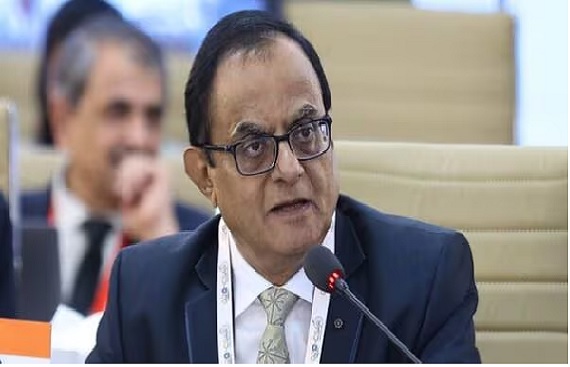India Needs Sustainable Ecosystems for Deep Tech Startups

India needs to establish long term, sustainable mechanisms to support deep tech startups if it aims to emerge as a global leader in innovation, according to Principal Scientific Adviser (PSA) to the Government of India, Prof. Ajay Kumar Sood.
Prof. Sood, who also chairs the Prime Minister’s Science, Technology and Innovation Advisory Council and holds the position of National Science Chair Professor at the Indian Institute of Science (IISc), emphasized the necessity for India to nurture not just startups, but also sustainable ecosystems that enable their long term success.
He cited the success of India’s space program as an example, suggesting that similar replicable models could be applied across various sectors, including defense, biotechnology, electric vehicles (EVs), and nuclear technology.
In an interview with The Indian Express, Prof. Sood highlighted that initiatives like iDEX (Innovations for Defence Excellence) in defense and BIRAC (Biotechnology Industry Research Assistance Council) in biotechnology have already demonstrated that structured, need-based innovation ecosystems can flourish in India. He noted that the space tech sector, with its cost-effective yet advanced achievements and an increasing presence of private players, serves as a “template” for replication in other deep tech fields.
Addressing the financial requirements of these startups, Prof. Sood pointed out that the Rs 1 lakh crore corpus fund announced in last year’s Union Budget, aimed at providing zero interest loans, could play a crucial role in boosting deep tech ventures, provided it is customized to meet their specific needs.
He also mentioned that eight deep-tech startups have already received funding support under the National Quantum Mission. Currently, there are approximately 35 quantum startups in India, including a mix of major players and many promising smaller ventures.
Additionally, the Artificial Intelligence (AI) Mission, being implemented by the Ministry of Electronics and Information Technology (MeitY), includes a dedicated vertical for startups, he added.
Regarding the proposed Centre for Deep Tech Translation, Prof. Sood clarified that it may not be limited to a single physical location. Instead, it could function as a virtual or distributed network with a coordinated mandate to promote deep tech innovation.
In the context of the defense sector, Prof. Sood commended the success of iDEX, describing it as a prime example of targeted deep tech innovation.

